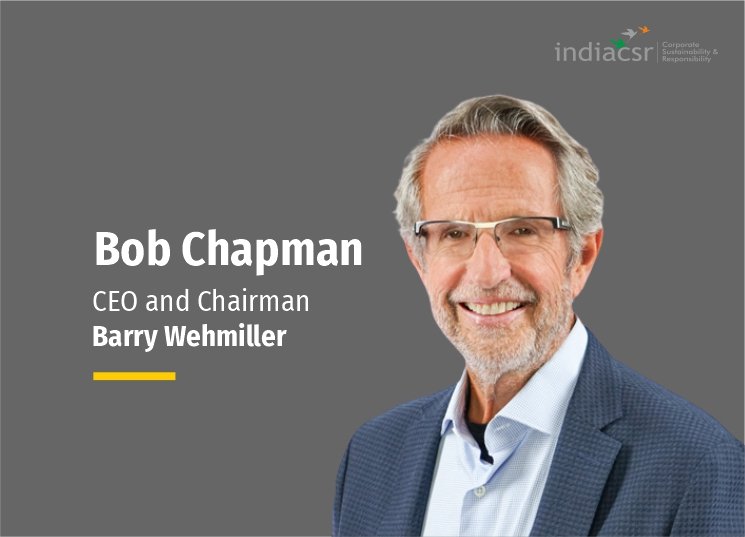Recently when Bob Chapman, Chairperson and CEP of $3 Bn Barry Wehmiller and author of Everybody Matters, highlighted during recent Leadership Gold series talk by Humanistic Management Network that how Barry Wehmiller (BW) managed to respond to the crisis created by loss of business due to global pandemic COVID-19, it was indeed a powerful example of how businesses can continue to serve for good even if there are adverse conditions.
Bob’s view that today the businesses are at most powerful position to drive any desired changes in the world brings a pragmatic and revolutionary approach to view and lead (not manage) business holistically, as people working with the business organizations are also the ones who are members of the family, community and society. The way we treat them has long-term implications for the way they respond and act in their social settings.
However, today, with the powerful (and manipulative) skills of management, matured and perfected by majority of conventional businesses, universities and B-Schools, are taking the world to the direction where one wants to ensure the short-term self-interest and returns first and this often leads to ignorance of long-term potential which could have contributed in much better and different fortune for all the stakeholders. Could we challenge and change the situation? If yes, how?
Bob reflected that during the time of crisis last year one of the BW businesses reported significant loss of business and all conventional management knowledge indicated for laying off people to save the business unit, BW collectively agreed with one month ‘unpaid work’ and this helped in saving many jobs, as they could manage the financial pressure created by the pandemic.
When we go deeper, it becomes evident that it was more than just saving the job of others at the times when people needed it most. It was a transmission of trust, commitment towards human dignity and moreover, a pragmatic leadership response to fight adversity with good for the good.
Just one month of collective sacrifices, lead to ensure a more stronger organization (group of people) whose shared values, commitment and trust is much more than any B-School researchers can ever estimate (and hardly realize) relying on set of principles and mimicking on set of conventional practices (or forced fabricated norms of doing business).
This experience is resonates with the three-stepped approach of Humanistic Management: unconditional respect for dignity of life; integration of ethical reflection in management decisions; and active and ongoing engagement with the stakeholders.

We have thousands of the examples of the humanistic leadership responses from the global business history during last one century. For example, when Henry Ford announced $5/ Day wage in 1914 for Ford Motors workers for what later he reflected as ‘..so that they could afford to buy our cars’, is one of the most classical documented examples of holistic considerations in shaping humanistic organizations (of course, here we are not debating the motive of the decision as some critics have analysed later).
Bob’s ‘one month off’ decision is one of the most recent one that shows that despite all the ‘knowledge pollution generated’ in the body of knowledge (and practice) of ‘Management’ in name of skills, still we can collectively innovate and respond for the greater good. And this is not for the charity, it is with 100 percent business sense for better and sustainable business for sustainable planet, what the Humanistic Management always envisions and struggle for.
During more than last one year of continued global pandemic, we have witnessed numerous cases of inhumane employee lay-offs and salary reductions, often justified legally and technically (thanks to the powerful knowledge system emerged in response to the industrial revolution). Most of these examples could be categorized in following:
- Case A: Reduction in head-counts starting from lower salary drawing operational employees.
- Case B: Reduction in head-counts starting from top few high salary earning employees.
- Case C: Reduction in salary of higher-salary, lower-salary or all employees.
- Case D: Any combination of above A,B and/or C.
While we all understand that businesses can’t continue to pay their employees in case of extreme losses, the fundamental and humanistic questions that arise:
- Have we really lost the business (or revenue) for which the employees were employed?
- Have we considered the amount of profits and shareholder value generated by the people collectively for long?
- Have we considered the cash reserve already generated by these employees to face the crisis?
- Are we considering the long-term impact of such decisions on the learning-curve (and linked core competencies) which employees have developed in past and may lose with such decisions?
- Will it really help in saving and sustaining the businesses in long-term when the situation back to normal?
And if not, for sure the organization is set to suffer in the long-term with such quick fix decisions which consider people at last (in practice).
The Bob’s example could be an inspiration for the organizations to re-think their approach while dealing with fast changing VUCA (volatile, Uncertain, Complex and Ambiguous) business environment. It not only reflects the careful considerations of all five questions above but also reflect the conformance to the humanistic management fundamental values.
While the world is all set to see new changes in business decisions and practices due to combined effect of pandemic and alternative emerging business models, let’s not forget that event best of the technologies can help in developing a long-term and sustainable organization, which is collection of people (for people) first! Hope the B-Schools, Universities, big Consulting Gurus and Businesses will learn some humanism for humanistic business and better world!
(CopyRight@IndiaCSRNetwork)







